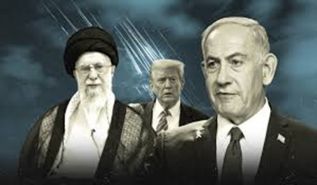بسم الله الرحمن الرحيم
The Steadfastness of the Prophet (saw) and the Steadfastness of His Companions (ra) and His Envoys
(Translated)
https://www.alwaie.org/archives/article/20023
Al Waie Magazine Issue No. 471
Thirty-Ninth Year, Jumada I 1447 AH corresponding to October 2025 CE
Ryan Issa – Wilayah Iraq
Allah (swt) sent His Messenger Muhammad (saw) to his people to bring them out of the darkness of ignorance into the light of Islam. He openly proclaimed his Risaalah message before the Quraysh. From the very first day, while on Mount Safa, he warned his people and informed them that Allah (swt) had sent him as a messenger to them, a bearer of glad tidings and a warner. The people knew him to be truthful and trustworthy, but they rejected him, fought against him, and harmed him (saw).
The Quraysh as a whole ignored this new call, believing it to be a matter concerning only the Banu Hashim and Banu Abd al-Muttalib clans, especially since the Prophet (saw) initially focused his mission on his closest relatives and friends, in accordance with the verse,
[وَأَنذِرۡ عَشِيرَتَكَ ٱلۡأَقۡرَبِينَ]
“And warn your closest relatives” [TMQ Surah Ash-Shuaraa: 214]. After the number of Companions (ra) increased, the Prophet (saw) designated a place for them to meet secretly, away from the eyes of the Quraysh. This was the house of al-Arqam ibn Abi al-Arqam. This continued for three years, during which he taught them the Holy Quran. After Hamza ibn Abd al-Muttalib and then Umar ibn al-Khattab (may Allah (swt) be pleased with them both) embraced Islam, the Prophet (saw) led his followers in two rows, with Hamza at the head of one, and Umar at the head of the other. It was a day of great difficulty for the disbelievers.
Here, the Quraysh realized the gravity of the situation and that they had to take a firm stand to deter the Prophet (saw) and his followers. So they resorted to lies, injustice, slander, imprisonment, torture, forced displacement, siege, and bribery, offering the Prophet (saw) kingship, women, and authority—all to compel him to abandon his mission. However, the Prophet (saw) simply said to his uncle, «يا عمّ، والله لو وضعوا الشمس في يمينى والقمر في يساري على أن أترك هذا الأمر حتى يظهره الله أو أهلك فيه ما تركته»“O my uncle, by Allah (swt), even if they placed the sun in my right hand and the moon in my left, I would not abandon this cause until Allah (swt) makes it prevail or I perish in its pursuit.” Even if they had offered him what he (saw) asked of them—which was utterly impossible—he (saw) would not have accepted it. This is a lesson for anyone who compromises their Deen, their Iman, and their Ummah for worldly gain or to marry a woman!
After years of intellectual struggle between the Prophet Muhammad (saw) and his followers on one side, and the oppression, slander, and injustice of the Quraysh leaders on the other, and after the land, in all its vastness, had become too narrow for the Muslims in Makkah and its society had hardened against the Islamic Dawah, Allah (swt) willed that the Prophet (saw) should meet a group of people from Yathrib (Madinah) from the Khazraj tribe. Their hearts opened to his (saw) Risaalah message, so he sent his Companion Mus’ab ibn ‘Umair (ra) with them to teach them Islam. This Mus’ab was Mus’ab ibn ‘Umair ibn Hashim ibn ‘Abd Manaf. He grew up in Makkah as a young man of luxury and comfort, wearing the finest clothes and using the most exquisite perfumes. He was among the first to embrace Islam. As soon as his parents learned of his embracing Islam, they tried to stop him and force him back to idol worship. He refused, so they imprisoned him and cut off his financial support, leaving him destitute. He fled from them and emigrated to Abyssinia, then returned to Makkah with those who came back. The Prophet (saw) chose him for the mission of spreading the Risaalah message in Madinah. He was the best envoy for the Messenger of Allah (saw) and was the first emigrant to Madinah. He participated with the Messenger of Allah (saw) in the battles of Badr and Uhud, and he carried the banner of al-Uqab, the Rayah banner of the Messenger of Allah (saw). He was martyred (may Allah be pleased with him) in the Battle of Uhud, and he had nothing but a single garment. If they covered his face with it, his feet were exposed, and if they covered his feet, his head was exposed. So the Messenger of Allah (saw) said,
«غطوا رأسه واجعلوا على قدميه الإذخر»
“Cover his head and place some sweet-smelling grass on his feet.” Then the Messenger of Allah (saw) recited to him the words of Allah (swt),
[مِّنَ ٱلۡمُؤۡمِنِينَ رِجَالٞ صَدَقُواْ مَا عَٰهَدُواْ ٱللَّهَ عَلَيۡهِۖ فَمِنۡهُم مَّن قَضَىٰ نَحۡبَهُۥ وَمِنۡهُم مَّن يَنتَظِرُۖ وَمَا بَدَّلُواْ تَبۡدِيلٗا]
“Among the believers are men who have proven true to what they pledged to Allah. Some of them have fulfilled their pledge with their lives, others are waiting their turn. They have never changed their commitment in the least.” [TMQ Surah Al-Ahzab:23].
After the First Pledge of Aqabah, the Prophet (saw) sent him to Madinah to spread Islam. Allah (swt) granted him success in this endeavor, and the leaders of the Aws and Khazraj tribes submitted to him. The common people followed their leaders and entered the Deen of Allah (swt) in groups. Mus'ab returned to the Messenger of Allah (saw), and there was no house in Madinah that did not contain a Muslim who professed the Tawheed (Oneness) of Allah (swt) or spoke well of Islam. A delegation from the Aws and Khazraj tribes came and pledged Bayah allegiance to the Messenger of Allah (saw), promising to listen and obey in times of ease and hardship. This was the Second Pledge of Aqabah, one year after the first. It was a pledge for war and a nussrah (military support) covenant for the establishment of the first Islamic state in Madinah. Allah (swt) increased its light upon light, and it was the beginning of the glory of Islam and the Muslims.
Had it not been for the Prophet's (saw) unwavering commitment to his mission, after the grace and mercy of Allah (swt) and the Prophet's (saw) excellent choice of envoys to the people, the Islamic state would not have been established. The Prophet (saw) moved, acted, and traveled, just as any person would move to achieve their goals. This was purely a human endeavor supported by Divine Revelation, as if he were saying to his Ummah: You can establish your state and restore your glory and honor if you follow my path and my Sunnah, with Divine Revelation with you—the Book of Allah (swt) and the Sunnah of His Messenger (saw). Do not deviate from them, do not abandon them, and keep them before your eyes, for through them you will rebuild your state.
Looking at the state of Muslims today, one finds the Ummah at its worst, fragmented into more than fifty separate states, with the tyranny of nationalism, patriotism, capitalism, secularism and atheism. Each individual is preoccupied with their own life, neglecting the life of their Ummah, so that individualism, selfishness, and self-love have become the most prominent features of the lives of ordinary Muslims. To make matters worse, corrupt and treacherous rulers have seized control of Muslim affairs and their worldly lives, and they brutally suppress all who oppose them, to the point that Muslims now walk looking over their shoulders in fear and terror! Is this the situation that pleases Allah (swt)? Or does He prefer our glory, our elevation, and our dominance over the entire world?
O Ummah of the Prophet Muhammad (saw), by Allah (swt), you have no other methodology today but the methodology of your Prophet (saw). Only through it can you restore your Deen to govern your lives, and then carry it to the world as our righteous predecessors, may Allah be pleased with them, did. How similar today is to yesterday! Our current reality will not change except through patience, steadfastness, and persistence in changing it, no matter how heavy and bitter the price. Allah (swt) said,
[يَٰٓأَيُّهَا ٱلَّذِينَ ءَامَنُواْ ٱصۡبِرُواْ وَصَابِرُواْ وَرَابِطُواْ وَٱتَّقُواْ ٱللَّهَ لَعَلَّكُمۡ تُفۡلِحُونَ]
“O believers! Patiently endure, persevere, stand on guard, and be mindful of Allah, so you may be successful.” [TMQ Surah Aali Imran:200].




